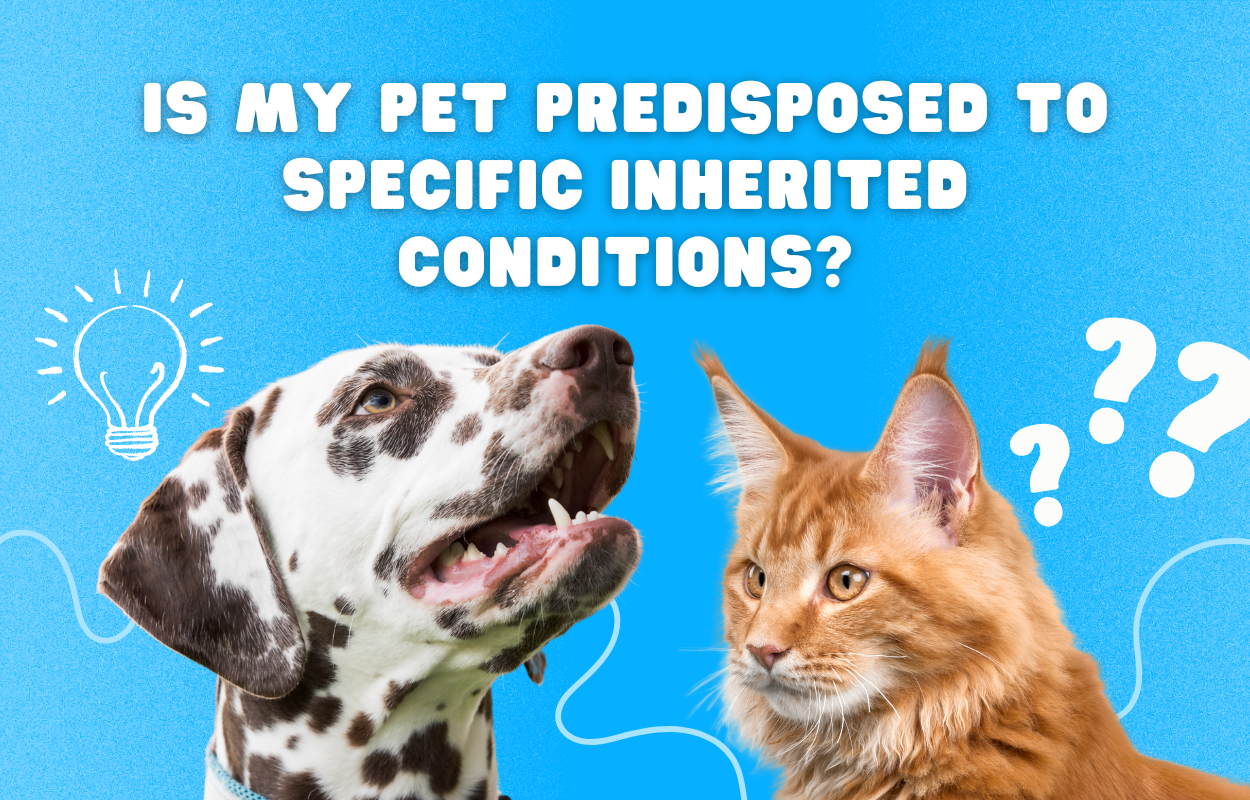
Hereditary Diseases in Dogs and Cats
February 03, 2023As responsible pet owners, we all want to ensure that our furry companions are healthy and happy. However, certain breeds of dogs and cats may be predisposed to specific inherited conditions. These conditions can range from mild to severe and can greatly impact the quality of life of our pets.
List of Predisposed to Specific Inherited Conditions in Dogs and Cats
Here is a list of some common inherited conditions that pets may be predisposed to, along with a brief explanation of each:


What To Do If You Think Your Pet Is Predisposed to Specific Inherited Conditions
If you think your pet may be predisposed to a specific inherited condition, there are a few steps you can take:


Your vet may recommend genetic testing to confirm if your pet has inherited a condition. Genetic testing can be used to identify specific mutations that are associated with certain inherited conditions.

If your pet is diagnosed with an inherited condition, your vet will develop a treatment plan that is tailored to your pet's specific needs. This may include medications, supplements, physical therapy, and surgery.

It's important to have your pet undergo regular check-ups with a veterinarian to monitor their condition and make any necessary adjustments to their treatment plan.
Proper diet and exercise can help to keep your pet healthy and reduce the risk of developing certain inherited conditions. Giving your pet additional supplements like fish oil for dogs can be beneficial to their overall health. It contains omega 3 fatty acids, a type of "good" fat that helps support their immune system and prevent various illnesses. Talk to your vet first before changing your pet's diet and supplementation.

Keep records of your pet's medical history, including any inherited conditions, and share them with your vet.

If your pet has a genetic condition, it's important to consider this when making decisions about breeding. Genetic testing can help identify carriers of certain conditions, which can help prevent the spread of the condition to future generations.

Also, giving your pet Salmon Oil can be beneficial. Salmon oil is a rich source of omega-3 fatty acids, which have been shown to have several health benefits for pets. Omega-3 fatty acids have anti-inflammatory properties and can help to reduce inflammation in the body. This can benefit pets with certain pre-disposed health conditions such as joint conditions, cardiac conditions, skin and coat conditions, and neurological problems.
What Will Happen If Predisposed to Specific Inherited Conditions Is Not Diagnosed



